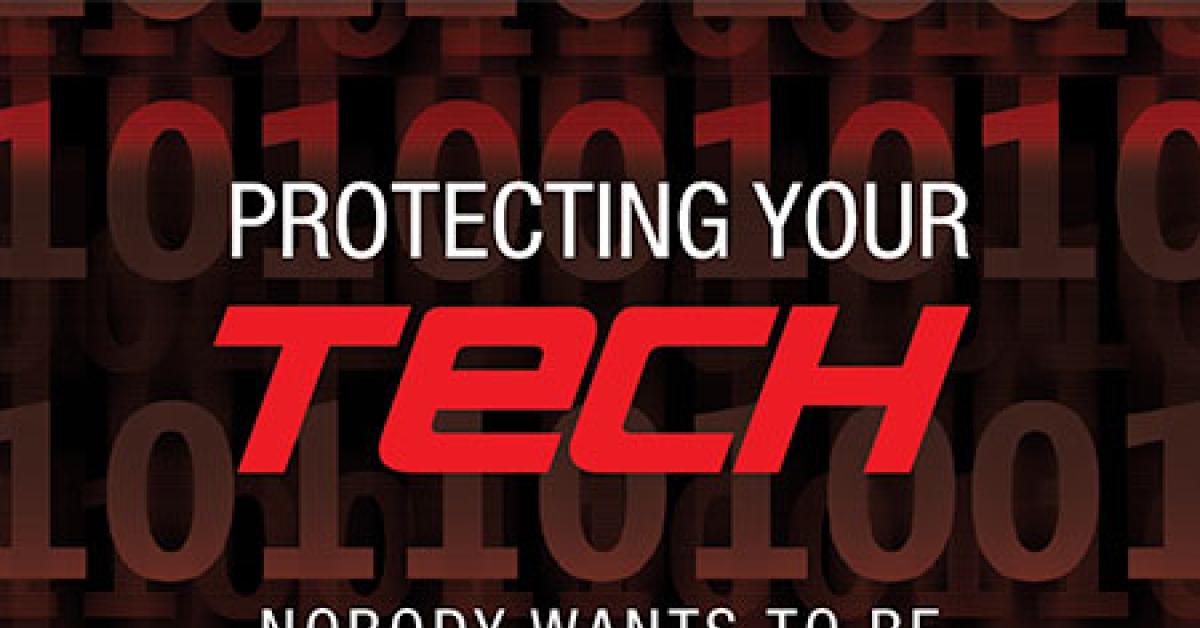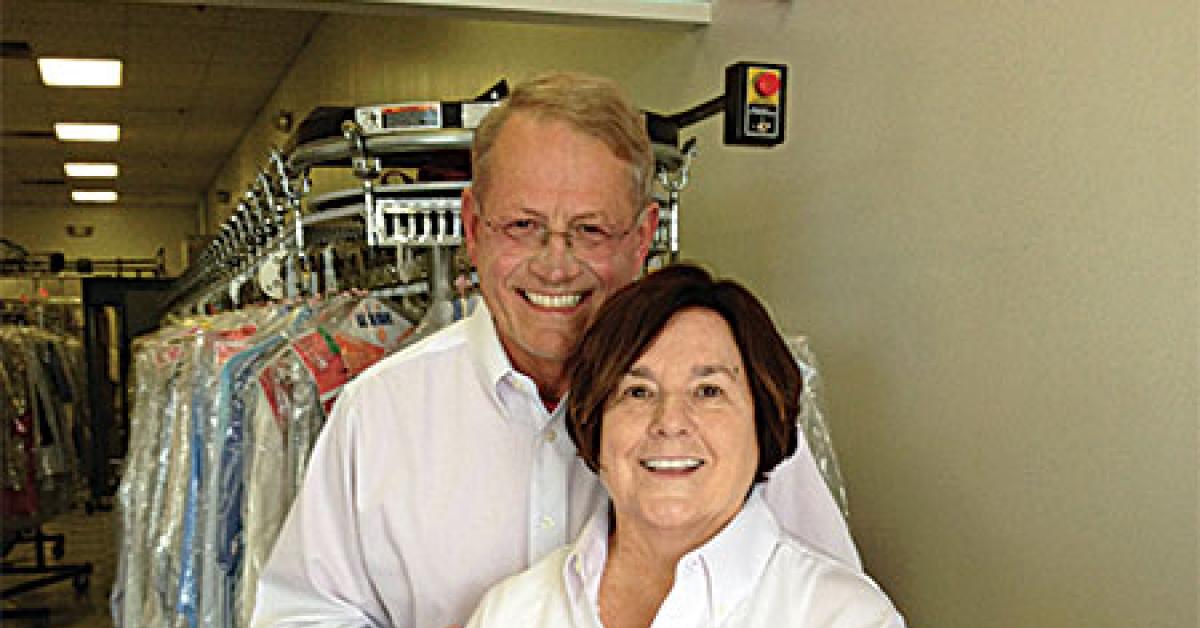CHICAGO — Anyone doubt that one of the main keys to happiness in life is peace of mind?
Especially for business owners in the drycleaning industry.
We’re in a world that moves fast, almost as fast as a neon glowing Tron bike darting across a dark, vast motherboard of an economic landscape. There are technology elements in your operation now that you must guard closely and diligently. Are you? Are you sure?
‘They’re using our signal against us!” Jeff Goldblum’s character pointed out in the first Independence Day movie, noting how aliens were using our own technology against us.
That really is the fundamental challenge you face in your drycleaning operation. Trying to secure your own technology; protecting against bugs and computer viruses on your systems, software, point-of-sale (POS) program, website, apps, social media, and also from someone simply stealing your data. All of it.
Our “age of communication” brought a bugaboo along: The security breach aka “The Hack.”
Nick Chapleau, founder and CEO of Chicago-based Starchup, a company which provides the fabricare industry with innovative technology to grow and run efficiently, says: “Proper utilization of software and data will keep you a step ahead. Cleaners cannot be scared of technology. But your technology — like anything else in your business — should be properly insured against hazards.”
Technology security is “basically disaster insurance,” as he puts it, adding that a security breach may not be as obviously hazardous as a plant fire or employee injury, but it can end up costing about as much.
His example from a drycleaning owner: “One cleaner we spoke with was victimized by a ransomware attack: someone put malware (‘a virus’) on the cleaner’s self-hosted server that scrambled all of the customer data to make it inaccessible, and then held the cleaner for ‘ransom’ — forcing the cleaner to pay cash for a key to unscramble the data.”
Sort of the “using our own signal against us” scenario playing out for real, with client data held hostage.
How did it turn out?
Chapleau says: “The cleaner paid for an IT professional to fix the issue, but it was still quite costly for that service and the downtime.”
He seems to concur with Joe McCammon, owner of Falmouth, Maine-based Compassmax (Maineline Computer Systems), a drycleaning software design firm with more than 25 years experience in fabricare, when Chapleau says that, “the most obvious tip that comes to mind is to host your data with one of the major hosting platforms like Google Cloud Services, Microsoft Azure, or Amazon Web Services. These services are by far the most secure way to host.”
He also offers a lower-tech tip: “Simply limit access to all sensitive data. Make sure credit card and account numbers are masked and accessible only by you or the owner of the data.”
Word to the wise, as you’ll see....
Chapleau continues: “We saw a case where a cleaner customer’s credit card number was taken and used by an identity thief. The cleaner initially blamed the POS’ lack of security, but it turned out to be an employee who simply wrote down the card number on a piece of paper!”
All types of security breaches are possible for any business owner. That hasn’t changed since the first merchant sold their goods. It’s true with drycleaning owners. But today, in only the burst of a nanosecond, things happen. Remember the speed of those Tron bikes! It pays to be prepared for that peace of mind.
Chapleau adds: “As Jack Ma, founder of China’s biggest online commerce company Alibaba, says, ‘Data is the electricity of the 21st century.’ And as James Brown said, ‘you have to pay the cost to be boss.’ Businesses that use data effectively are the future. Data security will be a minor cost of that leadership.”
But an important cost if you are unprepared for a hack or a malware virus. So be proactive.
“A prominent dry cleaner suffered a breach of their computer network — it was the compelling factor in switching to our firm,” relates Bill Alber, CEO, of San Francisco-based SMRT Systems, Inc., an all-in-one digital solution for drycleaning owners.
“They had an IT professional responsible for network maintenance and security; they had a firewall; and the computers were solely used for business,” he says.
Even with an IT pro on the payroll, he points out, they had multiple viruses and a bot net exploit. The Internet is an amazing tool, but without cloud software, getting the most from the Internet in a secure manner requires a full-time security professional.
He also seems to be in agreement with others here that, “Cloud software allows dry cleaners to get a huge bang for their hard-earned buck.”
It is, “next to impossible for a drycleaning business to maintain its own IT security,” says Alber.
“You need to actively monitor for threats of all shapes, sizes and origins — updating your software in response and applying security patches daily,” he says.
His tip for the drycleaning business owner: “Company insiders pose the greatest threat to credit card data security. Whether intentional or inadvertent, it’s not at all uncommon for employees to leak data.
“It’s important to routinely train employees on basic computer security and maintain strict permission levels, allowing employee-users access to only that data necessary to perform their work.”
He adds that “Moving your data to the cloud also helps with these types of threats, as accessing big chunks of data is typically disallowed in these types of solutions.”
Finally, Alber concludes, “owners should be sure to take advantage of ‘two-factor authentication,’ so that even with an infected computer, hackers cannot get to your information.”
Beavercreek, Ohio-based Buckeye Green Cleaners John Blair, vice president, co-owner with his wife Luanne Handley-Blair, president, reminds others: “I guess we have been lucky, but anyone who thinks their data is safe doesn’t understand. Period.”
We asked him to finish this thought: “If you don’t proactively invest in protecting your data, you will....” His answer? “Be a candidate for tomorrow’s headline!”
Chapleau also finishes the same thought: “Pay more in the long run. Whether it’s an actual security breach or the headaches of dealing with minor issues on your own, you have more important things to focus on.”
You do have more important things in your life, like your health and your family. And your successful fabricare business gives you financial security. Make sure that business is secure. Don't get hacked.
Protect your files. Protect your customer privacy. Protect your well-being. Don’t let anyone — even aliens from deep space — ever use your own technology against you.
To read Part 1, go HERE.
Have a question or comment? E-mail our editor Dave Davis at [email protected].


